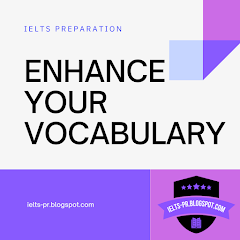The International English Language Testing System (IELTS) is a standardized English language proficiency test used to evaluate the English language skills of non-native English speakers. One of the most important skills that are tested in the IELTS exam is the ability to communicate effectively on a wide range of topics. In the IELTS speaking and writing tests, candidates are often asked to talk about news and media. To do so effectively, it is important to have a good understanding of the vocabulary used in this context. In this article, we will explore some commonly used IELTS vocabulary when talking about news and media.Current affairs: This refers to events and developments that are happening in the world right now. Questions about current affairs are common in the IELTS speaking and writing tests, so it's important to keep up to date with the latest news and developments.
Example sentence: "I try to keep up to date with current affairs by reading the news every day."Breaking news: This refers to important news that has just happened or is happening right now. Breaking news is often used to grab the attention of viewers or readers.
Example sentence: "I was watching the news when the breaking news alert came through about the earthquake in Japan."Headline: This is the title of a news article or story. Headlines are often used to summarize the main point of a news story.
Example sentence: "The headline of the newspaper read 'President announces new policies on climate change'."Press release: This is a statement or announcement issued by a company, organization, or government agency to the media. Press releases are often used to announce new products, services, or initiatives.
Example sentence: "The company issued a press release announcing its plans to expand into the European market."News anchor: This is the person who presents the news on television. News anchors are responsible for delivering the news in a clear and impartial manner.
Example sentence: "The news anchor on the evening news is always very professional and objective."Investigative journalism: This refers to a type of journalism that involves in-depth research and investigation into a particular topic or issue. Investigative journalists often uncover important information that might otherwise have remained hidden.
Example sentence: "The investigative journalism team at the newspaper uncovered evidence of corruption at the highest levels of government."Opinion piece: This is an article or column in which the author expresses their opinion on a particular topic or issue. Opinion pieces are often used to stimulate debate and discussion.
Example sentence: "The newspaper published an opinion piece on the need for stricter gun control laws."Media bias: This refers to the tendency of the media to present news in a way that is biased or slanted towards a particular political or ideological perspective. Media bias is a common topic in the IELTS exam.
Example sentence: "The candidate accused the news media of bias in their coverage of the election campaign."
In conclusion, having a good understanding of the vocabulary used in news and media is essential for success in the IELTS exam. By using these common terms and phrases, candidates can effectively communicate their ideas and opinions on current affairs and related topics.
Popular Posts
-
Here are some steps that might help to guarantee success for you in IELTS.
-
The International English Language Testing System (IELTS) is a widely recognized test of English language proficiency for non-native speaker...
-
You should spend about 20 minutes on this task. The chart shows the number of mobile phones and landlines per 100 people in selected ...
-
Introduction (1minute) Interviewer greets the candidate and introduces himself or herself. Interviewer asks the candidate to state his or...
-
Topic: Internet Scam Prompt: With the rise of the internet, online scams have become more prevalent. Discuss the impact of internet scams on...
-
Providing a national system in a country where the unemployed receive a regular payment only encourages people not to seek work and puts an ...
-
You should spend about 20 minutes on this task. The table below shows the consumer durables (telephone, refrigerator, etc...) owned...
-
You are advised to spend a maximum of 20 minutes on this task. In June 1996, an experimental flu vaccine was trialled...
Label
- IELTS BOOKS (11)
- IELTS LISTENING (30)
- IELTS READING (32)
- IELTS SPEAKING (39)
- IELTS WRITING (57)
- ielts tips (45)
Archives
Total Pageviews
IELTS TIPS - Commonly used IELTS vocabulary when talking about news and media - Part 1
Wednesday, February 22, 2023Posted by Info tech at 3:26 AM
Labels: ielts tips
Subscribe to:
Post Comments (Atom)








.png
)




0 comments:
Post a Comment